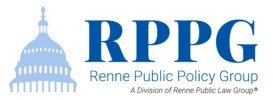Legislative Report - October 2023
LEGISLATURE CLOSES OUT FIRST YEAR OF 2023-24 SESSION
The Legislature closed out its first year of the 2023-24 legislative session on September 14. The final two weeks were hectic, with Floor session taking place every day and hundreds of bills passing the Legislature on or before the last day of session. Bills now have until October 14 to be signed or vetoed by Governor Newsom. Although during most of the legislative session the Governor must sign or veto a bill within 12 days of its passage by the Legislature (otherwise it automatically becomes law), during the final month this is extended to 30 days. We will therefore not have a full picture of how 2023 faired for legislation until that date.
Of the 2,662 bills introduced since the start of this session, 1,046 made it to the Governor’s desk (note: around 3,000 measures were introduced, but not all march toward the Governor for potential enactment, such as constitutional amendments). This ratio of bills making it to enrollment is roughly congruent with all prior years Governor Newsom has been in office, with generally less than 15% vetoed and approximately 85% signed into law.
Bills by the Numbers
As of October 2, there are 738 bills on the Governor’s desk awaiting his signature or veto. Thus far this session, 475 have been chaptered and 11 have been vetoed.
End of Session Talk of The Town
The following measures were focal points in the final weeks and days of session, with large groups in support and/or opposition working the items heavily in the halls of the Capitol.
- ACA 1 (Aguiar-Curry) Local government financing: affordable housing and public infrastructure: voter approval. ACA 1 passed the Legislature on the last day of session and per SB 789 (Allen), which is pending before the Governor, will be put on the November 5, 2024 ballot. The measure, if approved by voters, would increase the taxing ability of local governments to fund public infrastructure and affordable housing. This measure was heavily lobbied in support by non-profit housing groups and backed by labor organizations, as well as the full spectrum of local government associations and individual agencies. However, it faced fierce opposition from realtor and taxpayer accountability organizations. Advocates worked hard in the final days to ensure the measure had enough votes to pass.
- ACA 13 (Ward) Voting thresholds. ACA 13 passed the Legislature on the last day of session and is currently being “held at the desk” until after the deadline for March 2024 ballot measures so that it can be placed on the November 5, 2024 ballot. The measure, if approved by voters, would require that an initiative measure that increases the voter approval requirement to adopt any state or local measure must receive a proportion of votes in favor of the initiative that is equal to or greater than the highest voter approval requirement imposed by the initiative. This measure was heavily lobbied in support by labor organizations as well as the full spectrum of local government associations and individual agencies. However, it faced fierce opposition from the California Business Roundtable and taxpayer accountability organizations, who shared misinformation campaigns in the final weeks that led to much confusion among legislators and supporters alike. Advocates worked hard in the final days to provide correct information and to ensure the measure’s passage.
Of note, RPPG worked with coalition stakeholders to round up opposition to CARPD priority oppose measures, creating Floor Alerts and letters to the Governor and securing additional powerful opposition to add to the effort. RPPG participated in coalition meetings with committee staff doing Floor analysis and the Governor’s office several times on AB 1484 (Zbur), SB 799 (Portantino), AB 452 (Addis), and SB 558 (Rubio) to try and persuade Governor Newsom to veto these bills on behalf of the Association. These meetings resulted in AB 1484 being substantially amended to remove the grievance process language entirely – which was CARPD’s main priority – as well as to clarify that the provisions do not apply to contracted employees secured through third party staffing entities. The coalition was successful in its opposition to SB 799, which was vetoed by the Governor on September 30. RPPG is closely monitoring all of the bills on which the Association has adopted a position including:
Chaptered
- AB 30 (Ward) Atmospheric Rivers: Research, Mitigation, and Climate Forecasting Program (Association Position: Support)
- AB 334 (Blanca Rubio) Public contracts: conflicts of interest — Association Position: Support
- ACA 1 (Aguiar-Curry) Local government financing: affordable housing and public infrastructure: voter approval Association Position: Support
- ACA 13 (Ward) Voting thresholds — Association Position: Support (Held at desk until November 1, 2023)
- SB 799 (Portantino) Unemployment insurance: trade disputes: eligibility for benefits — Association Position: Oppose (Vetoed)
Pending Signature/Veto
Support
- AB 557 (Hart) Open meetings: local agencies: teleconferences — Association Position: Support
- AB 781 (Maienschein) Accessibility to emergency information and services: emergency shelters: persons with pets — Association Position: Support
- SB 706 (Caballero) Public contracts: progressive design-build: local agencies — Association Position: Support
Oppose
- AB 452 (Addis) Childhood sexual assault: statute of limitations — Association Position: Oppose
- AB 1484 (Zbur) Temporary public employees — Association Position: Oppose
- SB 558 (Susan Rubio) Civil actions: childhood sexual abuse — Association Position: Oppose
LOOKING FORWARD
The legislative break between September 14 and January 3 is known formally as “Interim Study Recess.” During this time, legislators plan their priorities for the following year and begin to prepare to introduce new bills. Fall is the time to revisit the legislative platform and identify any sponsored legislation needed, as well as state budget priority asks, in the event funding opens up so that CARPD is pre-positioned to submit a request. To discuss further, join us on November 9 for the next CARPD Legislative Committee Meeting held via Zoom.

Alyssa Silhi
Renne Public Policy Group

